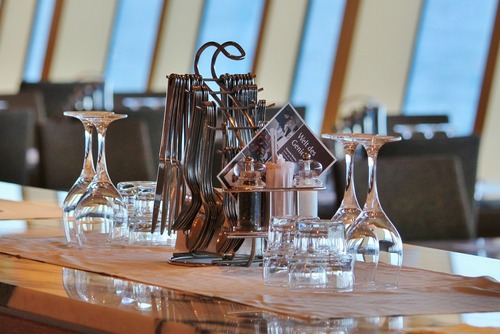Les coûts fixes des grosses PME pris en charge à 70 %
Les entreprises sous le coup d’une fermeture administrative ou en grande difficulté, appartenant au secteur de l’hôtellerie-restauration, du tourisme ou encore les salles de sport, dont le chiffre d’affaires est supérieur à 1 million d’euros par mois, bénéficieront d’une prise en charge allant jusqu’à 70 % de leurs coûts fixes. Cette aide est mise en place pour tout le 1er semestre 2021, dans la limite de 3 millions d’euros.
« Nous allons travailler avec les parlementaires aux meilleures façons de baisser ce seuil de 1 million d’euros qui, je sais, peut être pénalisant, pour un certain nombre de petites structures très spécifiques », a déclaré Bruno Le Maire. Cette aide viendra s’ajouter au fonds de solidarité, et vise à compléter l’aide mensuelle de 10 000 euros, jugée insuffisante pour les grosses structures.
Le plafond de 3 millions d’euros est le fruit d’une négociation avec la Commission européenne. « Nous allons continuer à négocier avec la Commission européenne pour voir si nous ne pouvons pas relever encore ce plafond », a souligné Bruno Le Maire.
Renforcement du fonds de solidarité
Les entreprises du secteur S1 bis, comme les commerces situés dans des zones touristiques internationales ou encore le transport de voyageurs, qui ne sont pas fermées administrativement, mais qui subissent indirectement les conséquences des fermetures, voient augmenter le montant du fonds de solidarité.
Ainsi, si elles perdent au moins 70 % de leur chiffre d’affaires, elles peuvent bénéficier d’une indemnisation représentant 20 % de leur chiffre d’affaires de 2019, dans la limite de 200 000 euros par mois. Ce montant était jusqu’ici limité à 10 000 euros par mois, ce qui était insuffisant pour les structures plus importantes.
Par ailleurs, le chiffre d’affaires généré par la vente à distance et/ou à emporter ne sera pas comptabilisé dans le calcul du fonds de solidarité, tant que celui-ci sera en place.
Enfin, les viticulteurs, impactés par les sanctions douanières américaines, feront l’objet d’un soutien particulier. Ils auront la possibilité de bénéficier du fonds de solidarité selon les modalités suivantes :
- Les viticulteurs ayant perdu 50 % de leur chiffre d’affaires seront indemnisés à hauteur de 15 % de leur chiffre d’affaires 2019, dans la limite de 200 000 euros par mois ;
- Les viticulteurs ayant perdu 70 % de leur chiffre d’affaires seront indemnisés à hauteur de 20 % de leur chiffre d’affaires 2019, dans la limite de 200 000 euros par mois.
Des délais de remboursement étendus
Toutes les entreprises qui le souhaitent, quel que soit leur secteur d’activité et sans condition de taille, pourront bénéficier d’un report supplémentaire d’un an pour commencer à rembourser leur prêt garanti par l’État. Les PGE souscrits en 2020 pourront donc, si besoin, n’être remboursés qu’à compter de 2022. Le report ne sera toutefois pas automatique, mais nécessitera un rendez-vous avec son conseiller bancaire, qui devrait alors donner son accord comme il a été convenu entre Bercy et la Fédération bancaire française. Au total, plus de 638 000 PGE ont été souscrits pour un montant de 130 milliards d’euros.
Par ailleurs, concernant les crédits antérieurs à la crise sanitaire, « les banques examineront favorablement et de manière personnalisée les moratoires ou les reports d’échéances nécessaires pour les entreprises subissant toujours des restrictions d’activité », a déclaré Bruno Le Maire.
Il sera également possible de différer l’amortissement comptable des biens peu utilisés en 2020, comme les équipements des discothèques ou encore, à titre d’exemple, les fours des restaurateurs.
Enfin, le dispositif d’activité partielle reste en place pour les entreprises fermées totalement, mais aussi partiellement, comme les commerces avec le couvre-feu à 18 h. Ainsi, les entreprises des secteurs protégés continueront à bénéficier d’une prise en charge totale, par l’Etat, des rémunérations versées aux salariés jusqu’à fin février.
Cette prise en charge à 100 % sera par la suite maintenue pour les entreprises enregistrant une baisse de chiffre d’affaires de 80 %, tandis que les autres auront un reste à charge de 15 %.
